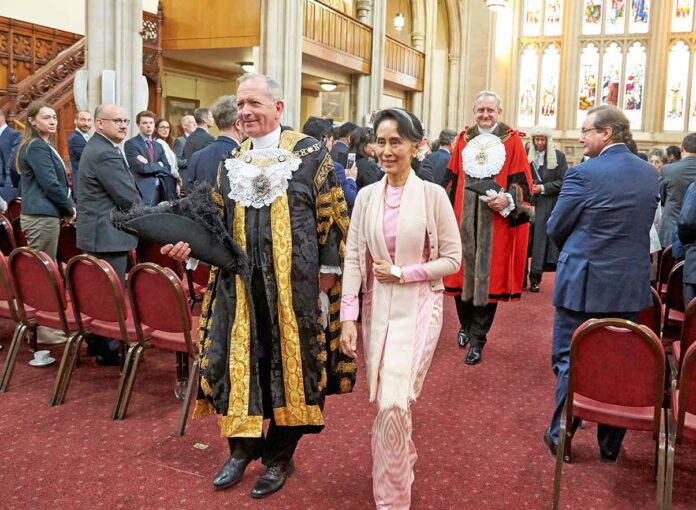
Five “unsuitable” candidates hoping to gain the coveted centuries-old Freedom of the City of London have been spotted since enhanced checks were brought in four years ago to protect the honour’s reputation.
The 15-minute enhanced checks include looking at applicants’ social media profiles, including entries on the LinkedIn website describing people’s career history, as well as checking Companies House entries of disqualified directors.
The first ceremony to bestow the freedom is thought to date back to 1237. It meant holders of the
freedom could trade in the Square Mile. The honour is largely ceremonial now and the City bestows the title on dozens of people a year including well known public figures.
The first female Doctor Who and Guildhall School of Music and Drama graduate Jodie Whittaker is one of the latest to be granted the freedom.
Earlier this year, Aung San Suu Kyi, the de facto leader of Myanmar, was the first person to ever be stripped of the honour. The City said it was concerned about human rights abuses against refugees who have fled the country.
Ms Suu Kyi was given the City’s top honour for non-members in May 2017, decades after she was awarded the Nobel Peace Prize for a non-violent struggle against the previous regime in Myanmar (previously known as Burma).
The Court of Common Council made the extraordinary move because of its “unhappiness with events in Burma and the position of the Civilian Government,” in September.
The City of London Corporation’s team of checkers also look out for ‘red flags’ in their enhanced vetting checks to protect the City’s reputation.
These include inappropriate or extremist personal views, links or appointments to an organisation or company “with any improper history” or bankruptcy, links or membership of any “inappropriate or extremist groups”, and impending court orders or arrests.
Applicants are not told about the results of vetting, unless a problem crops up, according to a report for the Freedoms Application committee on 27 November.
The checks by the Chamberlain’s Court use free online searches and take a maximum of 15 minutes.
However, the report pointed out that applicants who are guilty of wrongdoing “are likely to hide any record of this, which can be done relatively easily on the internet”.
And it found that many candidates for the freedom are “mature in years and often do not have a presence on social media”.
Another problem is finding a lot of results for people with common names, which can also be time consuming. However, the report said the enhanced checks help spot potentially unsuitable candidates early on and before they have been admitted to the freedom, provide an analysis of candidates, and discourages a casual approach to nominations.






